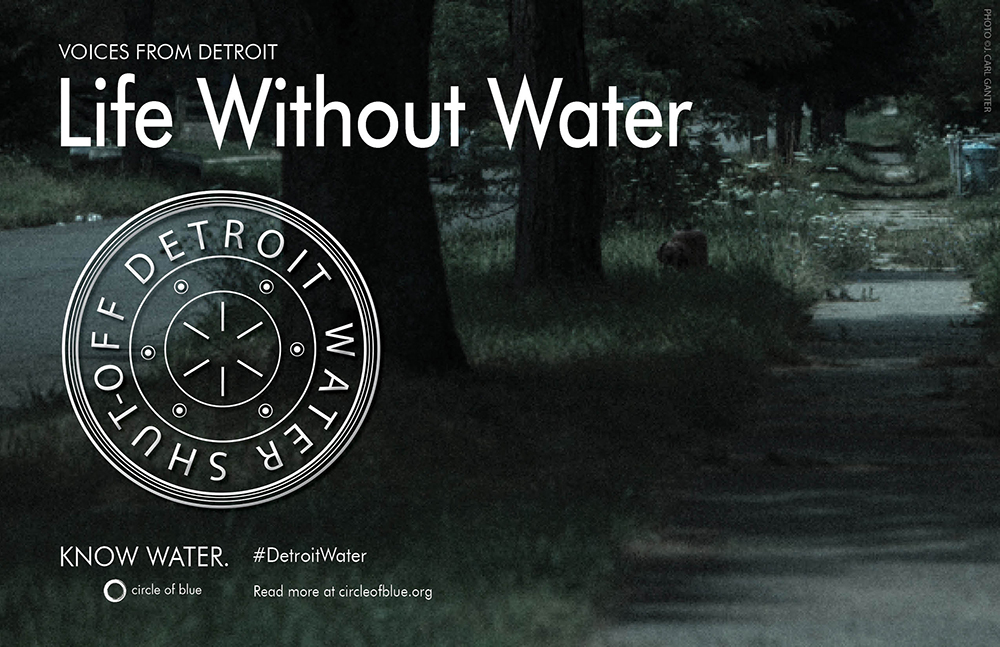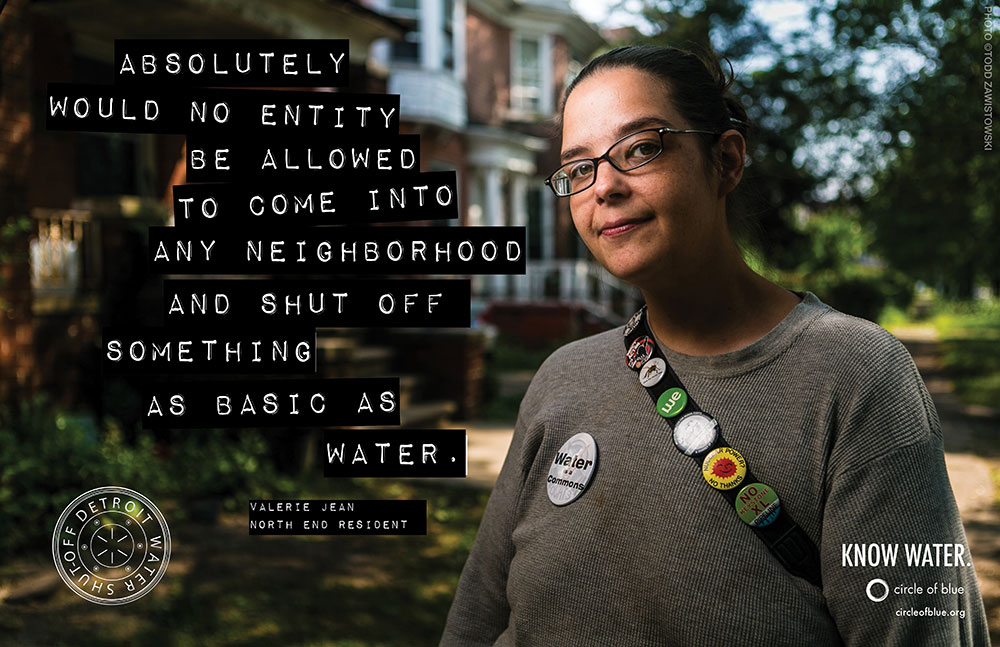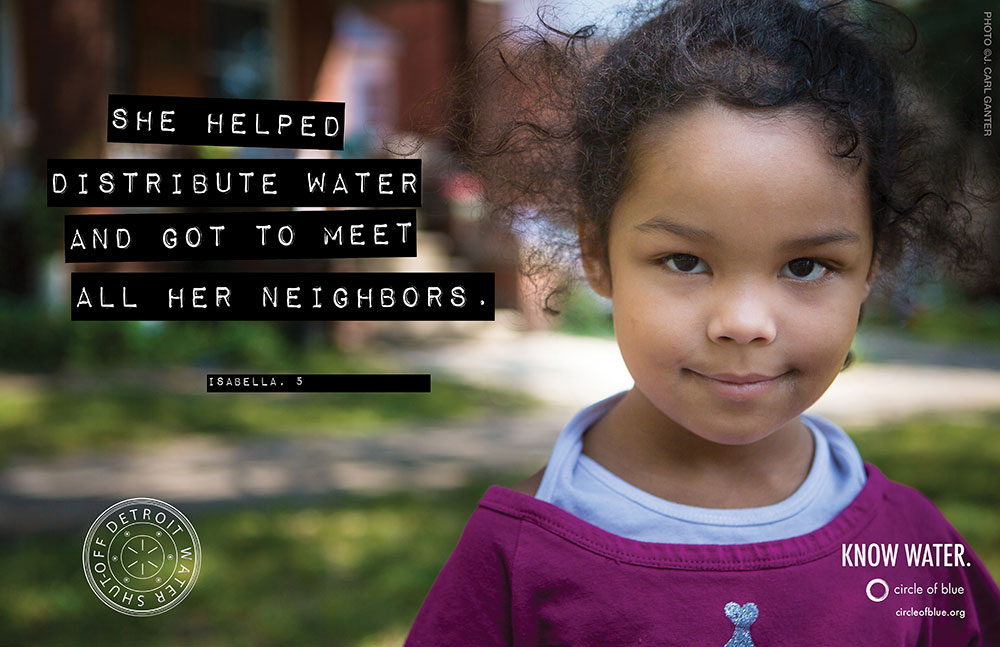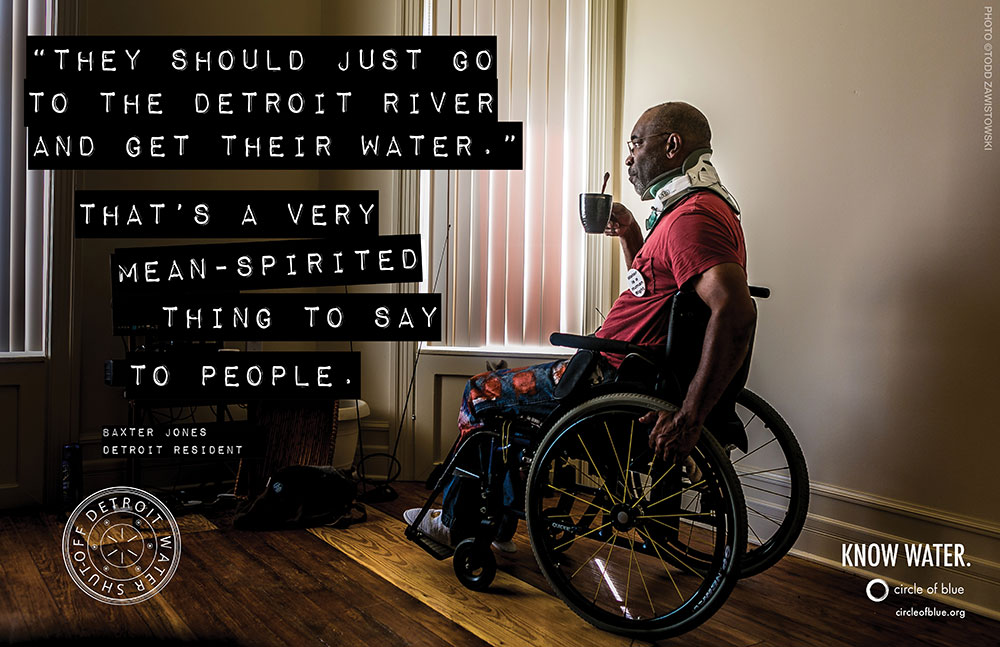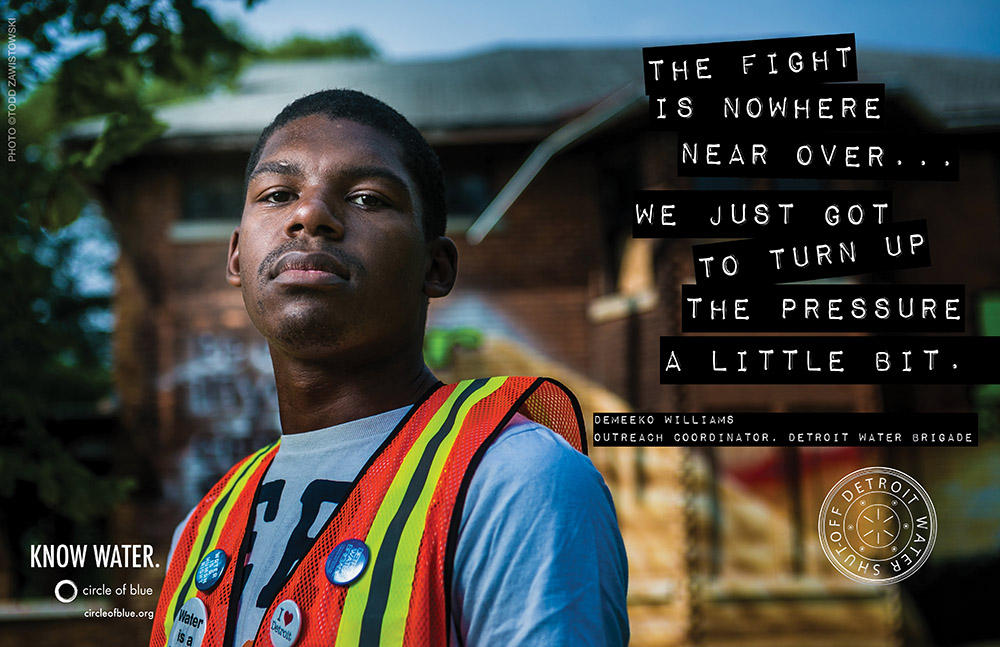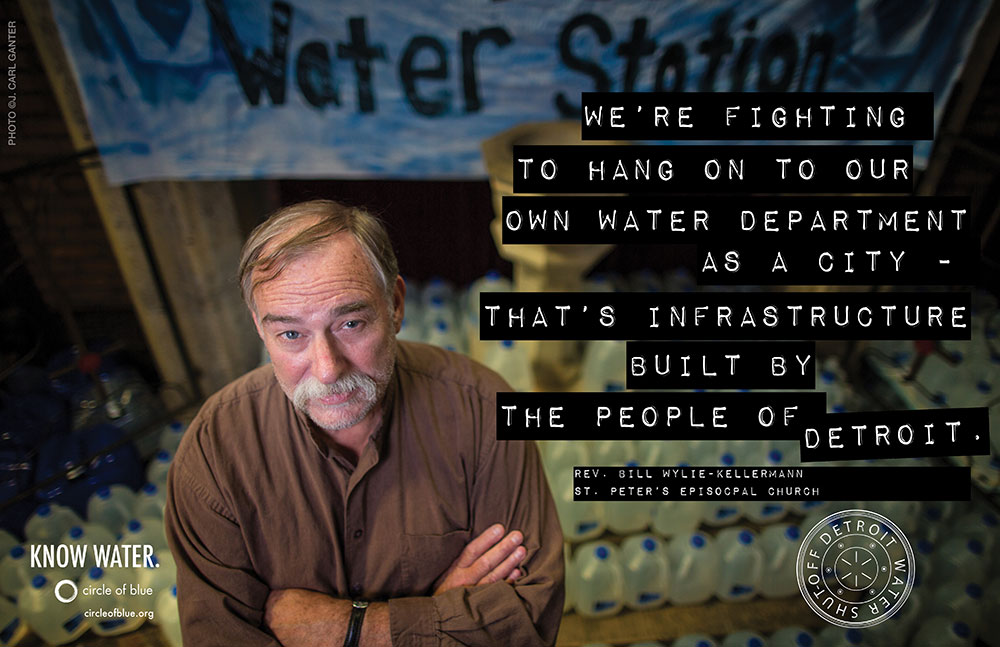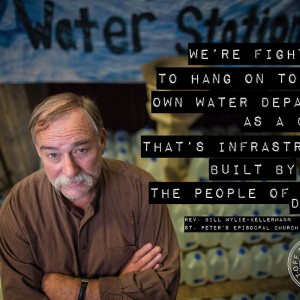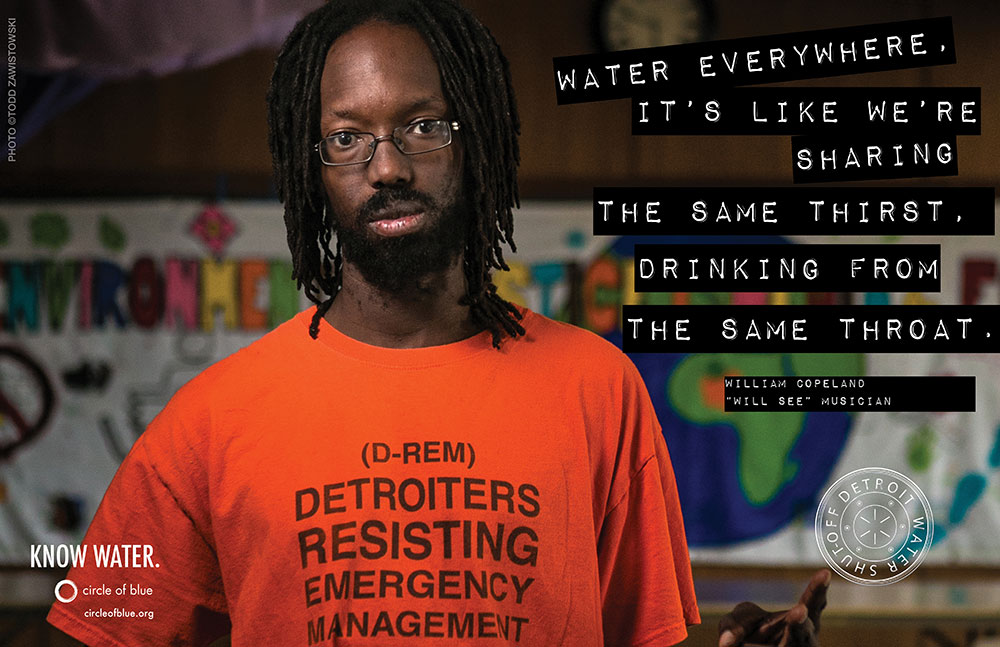
Light filters into a room on the north end of the First Unitarian Universalist Church, just outside the historic Cass Corridor. Covered in chalkboard paint, the building’s support pillars are filled with inspirational quotes about community, and the walls have been painted purple. Long pink, red, and purple cloths hang from the ceiling and run the length of the large room, which is filled with a dozen round tables and chairs. This is the headquarters of East Michigan Environmental Action Coalition (EMEAC), which began during the 1960s as a response to some of southeast Michigan’s biggest environmental concerns. Four years ago, EMEAC was priced out of its former office, which became luxury loft apartments. More and more often, this part of Detroit – adjacent to Wayne State University – is being called “Midtown,” but long-time residents know it as “the Corridor.” “As kids, we were told not to come here at night,” says Will See, EMEAC’s youth organizer. “The new name is part of a gentrification process, to bring people in.” He believes that the water shut-offs are another tool being employed – forcing people out of parts of the city makes room for more redevelopment projects. Will See is also a hip-hop artist who has written two songs about water as a public commons. In his song ‘Water Warriors,’ written almost a decade ago, when the first wave of shut-offs began in the city, Will See says, “…Remember when our neighbors used to work down at the water? Now we mail our payments down to Connecticut or Norfolk… They came in unnamed trucks to poor cement down Mary’s drain. Water Warriors.”
More Voices from Detroit
is a Traverse City-based assistant editor for Circle of Blue. She specializes in data visualization.
Interests: Latin America, Social Media, Science, Health, Indigenous Peoples


